
Window Replacement & Repair
Can You Fix A Cracked Window? A Complete Guide
Have you noticed a small crack in your window glass? How did that even happen?
Sometimes it's a soccer ball. Other times, it's the weather playing tricks. Whatever the cause, a cracked window needs to be repaired promptly. Otherwise, it becomes a safety hazard.
In this article, we'll explain everything you need to know about cracked windows: what causes these cracks, some repair tips, and why you should address this issue as soon as possible!
Key Takeaways
- Cracked windows can occur because of physical impacts, extreme temperature fluctuations, or even air pressure changes.
- Small cracks can sometimes be patched up with epoxy, but larger cracks, especially those in multi-pane windows, usually call for a full replacement.
- Until you replace your window, you can use temporary solutions like applying adhesive glue, bubble wrap, or a thick plastic sheet.
Why Do Windows Crack?
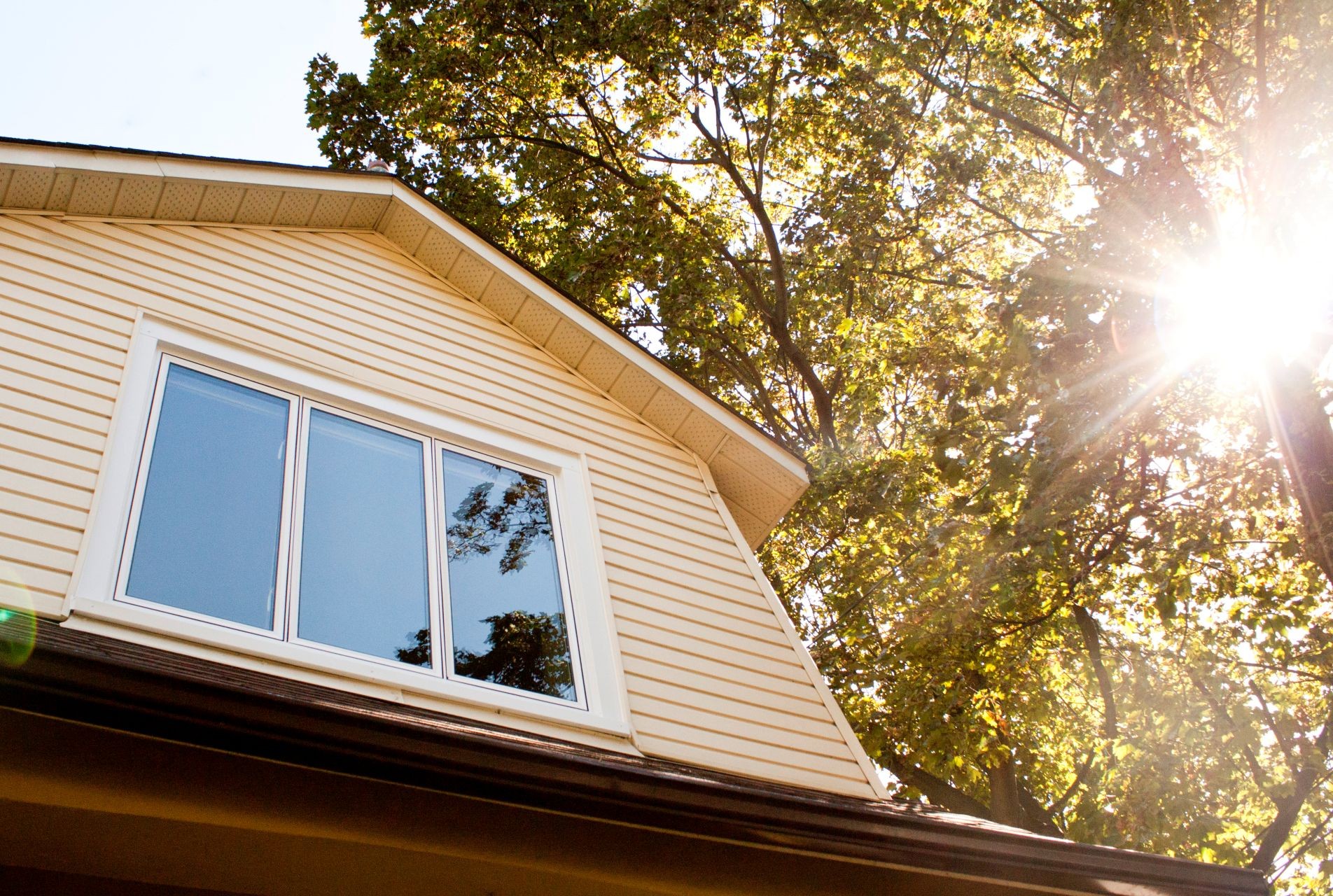
You'd be surprised how often a cracked window starts with something small - a rogue pebble from the lawnmower or a soccer ball kicked a little too hard by the neighbor's kid. Accidental impacts like these are usually the main culprit behind a cracked window.
However, windows do not always crack after a physical impact. Mother Nature plays a big role, too. For example, extreme weather and temperature fluctuations can cause your windows to expand and contract. This can lead to cracks - they are usually small at first but will spread over time if left unchecked.
Sometimes, windows can crack because of shifts in air pressure between two panes of glass.
Other Reasons Why Windows Crack
Furthermore, you may also notice window cracks because of the following reasons:
- The window is tall and narrow. When the window is square, the weight is distributed evenly. When the window is tall and narrow, it is exposed to more stress, which increases the risk of spontaneous breakage.
- The window edges are damaged. This can happen during transportation, manufacturing, storing, or installation. If it goes unnoticed during the installation, the crack can get worse and become more noticeable as the glass contracts and expands.
- The window has been installed incorrectly. In this case, the window faces additional pressure on certain portions, which increases the risk of cracks and breakage.
- The window is old. Older windows are more prone to cracking and may not be worth repairing.
Types of Cracks in Windows
If you want to fix the crack in your window, it's important to understand what caused it, as it may influence your decision: should you really fix the crack or replace the window as soon as possible?
These are the most common types of window cracks:
- Thermal stress cracks. Think of a glass oven dish placed into a preheated oven immediately after being taken out from the fridge - it will crack. The same can happen to a window. Thermal stress cracks are most common in single-pane windows. They appear after sudden temperature changes, like a hot afternoon followed by a chilly night. You’ll usually spot these cracks running perpendicular to the edge of the glass.
- Pressure cracks. These are most common in double-pane windows. They appear because of changes in air pressure between the panes. They can weaken the whole window, so it’s best to act fast. Pressure cracks look like an hourglass curve on the glass surface.
- Impact cracks. These are easy to identify—they look like a starburst or spiderweb and happen right at the point where something hits the glass. If you saw or heard the impact, this is likely the culprit.
Can Cracked Windows be Repaired?
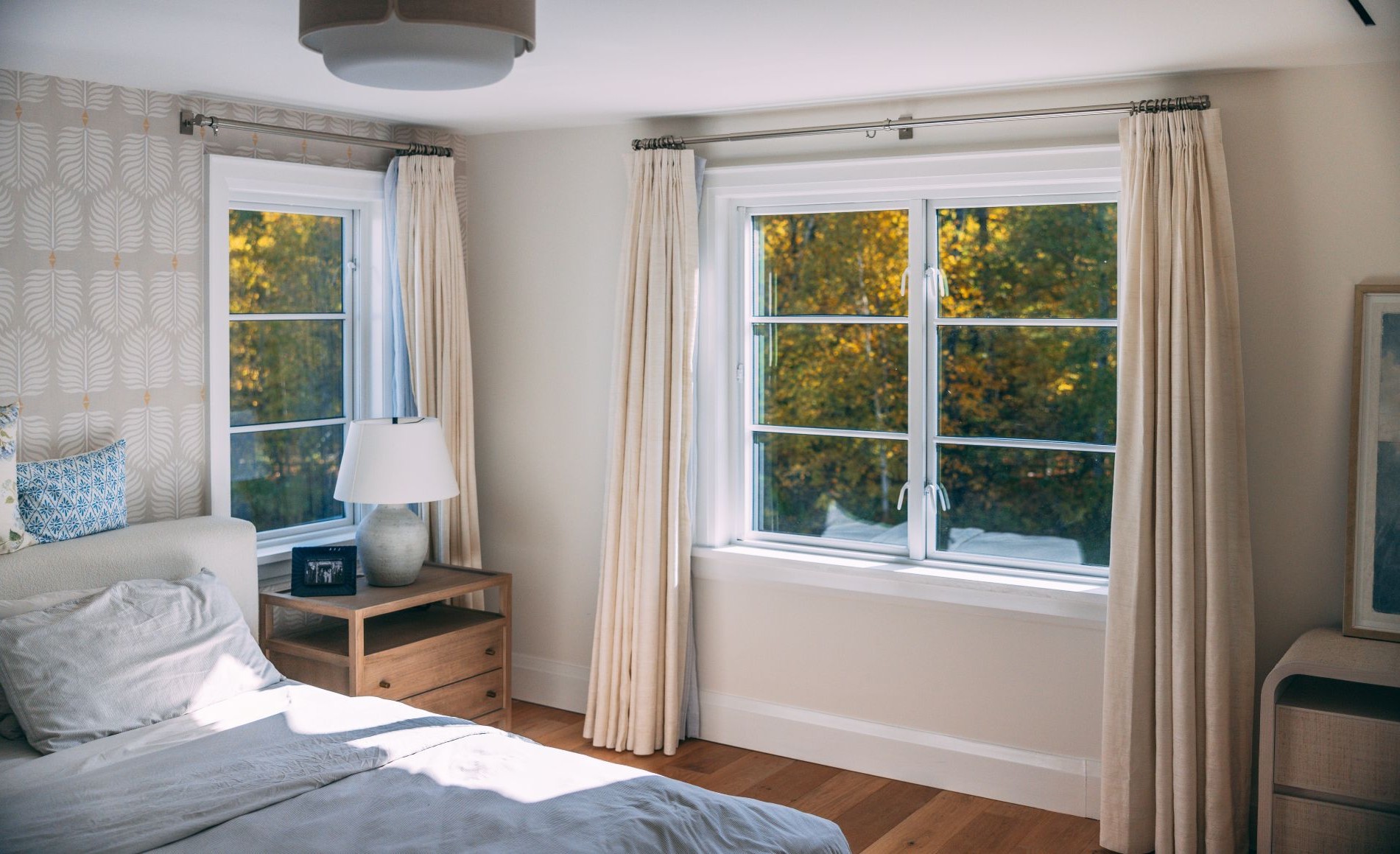
If you spot a crack in your window, don't panic. First, assess the severity of the crack. If it's a minor crack, you can probably fix it to avoid further damage and maintain your window's safety.
For a permanent solution in this case, you'll have to use a two-part epoxy mixture, a strong adhesive that bonds the glass together, and the right tools to apply it.
Here's a step-by-step guide on how you can do this:
- Clean the glass with a mix of dish soap and water. You need to get rid of dirt and oils so the adhesive can be effective.
- Mix the epoxy on a paper plate in a well-ventilated space: you'll need 50/50 resin and hardener. You'll have to work fast because it hardens pretty quickly.
- Apply it carefully to the damaged area using a putty knife or an applicator.
- Let it sit for 5 minutes or until it hardens.
- Use a razor blade or a different sharp blade to remove excess epoxy. You can also apply a few drops of acetone.
- In the meantime, you can use a caulking gun to cover any cracks around the frame.
- After 24 hours, use a clean rag and a glass cleaner to wash the glass.
Temporary Safety Measures for a Cracked Window
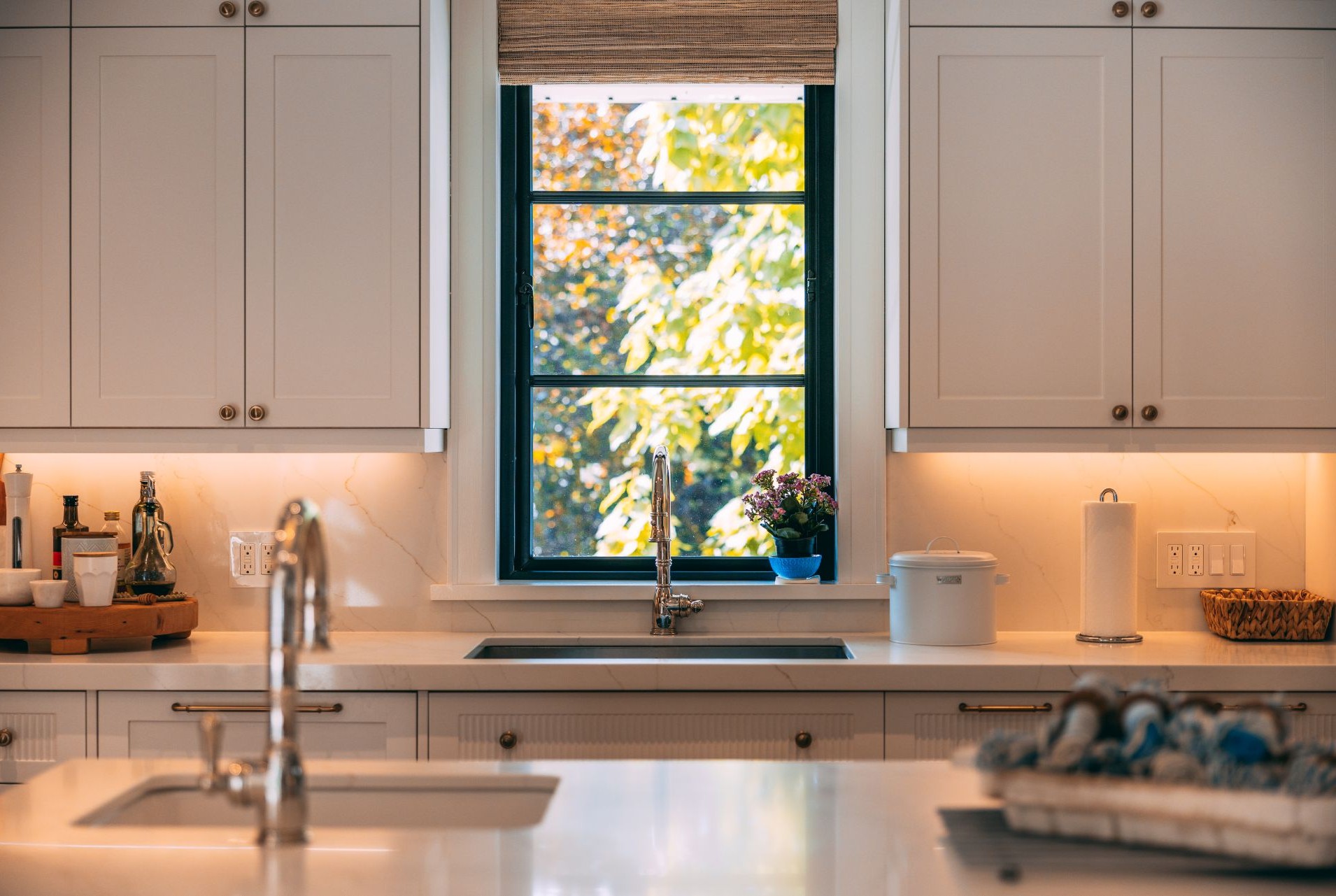
If it's a thermal stress crack or a pressure crack, for example, you will likely have to replace the window. But until then, you've got some temporary options to keep things safe and stable while you plan for the next step.
Here are some temporary fixes you can try:
- Glass adhesive, super glue, or masking tape: all work well for smaller cracks; they help stop the spread and keep dirt and moisture out.
- Thick plastic sheeting: great for larger cracks; just tape it over the area to seal things off.
- Bubble wrap (yes, really!): for storm windows, place insulation between the panes using bubble wrap.
If you're not sure whether your glass needs to be replaced, it's best to seek professional help. It can be very dangerous to continue using the cracked window, especially if it's large.
Safety Precautions for Handling Cracked Windows
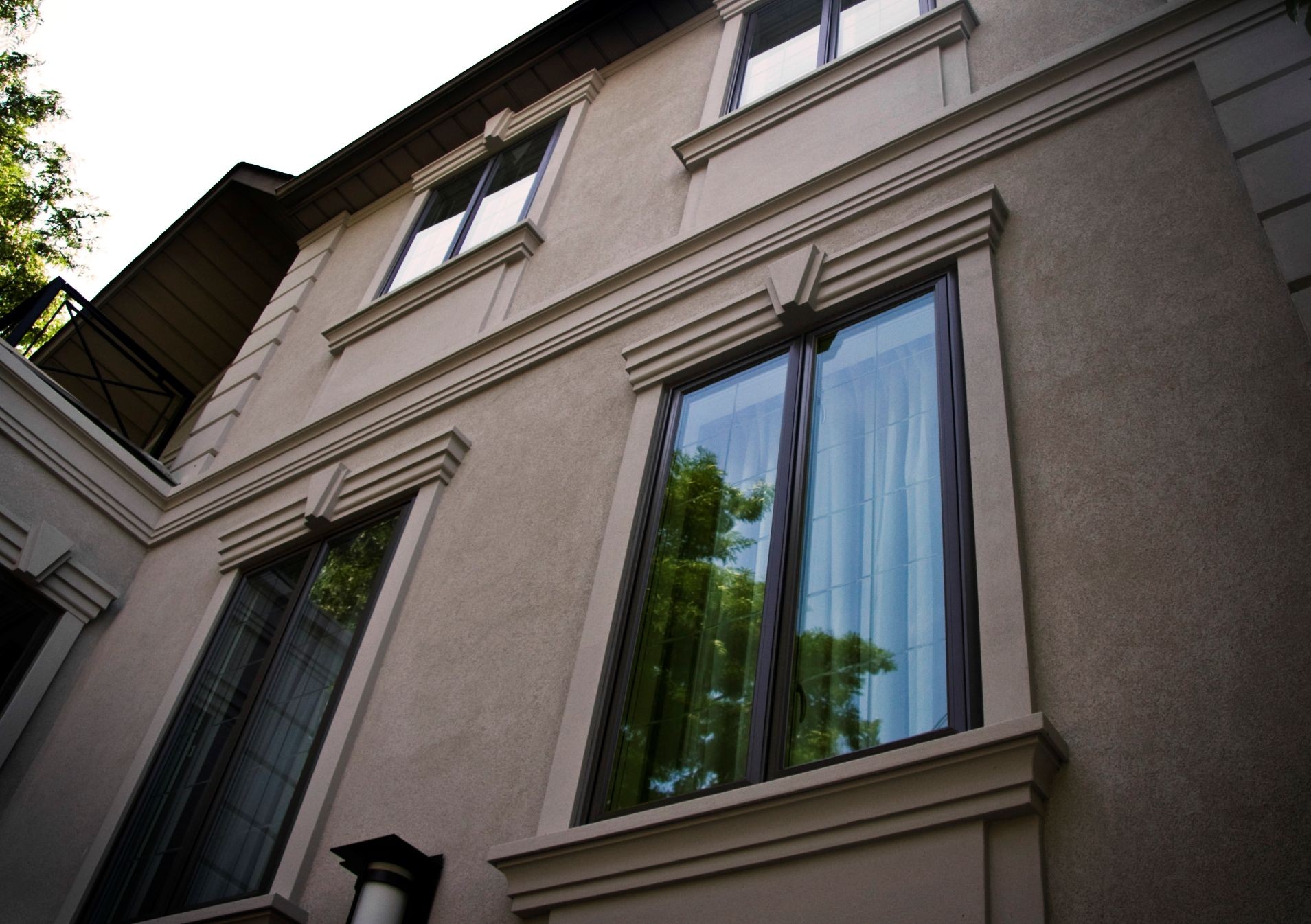
Cracked windows can be dangerous, especially in busy areas of your home or if they're quite large. Shards of glass, even small ones, can cause injury if you’re not careful.
Therefore, here are some safety tips that can help you prevent injuries:
- Wear protective gloves and goggles, always, even if you have tempered glass or laminated glass.
- Clear the area. Keep kids, pets, and anyone barefoot far from the glass.
- Cover the cracks until you replace the broken glass window. Use temporary fixes like duct tape or cardboard to stop the crack from spreading or the glass from falling out.
- Avoid DIY solutions for large or impact cracks. If the window damage is serious, call a pro. Removing cracked glass yourself can lead to injury or more damage.
Professional Glass Replacement or Repair Services
Sure, some cracks can be patched up at home, but if you want a lasting solution, professional help is the way to go.
Here's why a professional will be of tremendous help in this case:
- Expert assessment. They’ll tell you if you really need to go for window glass replacement or if glass repair is possible.
- Top-grade materials: better than the off-the-shelf kits you’ll find at the hardware store.
- Precision installation. If you choose to replace the entire glass pane or even the entire window, professionals will make sure it's installed correctly. This won't only prevent future cracks but also reduce air leaks, water damage, and misalignment.
- Peace of mind. Many services offer warranties on their window and glass repairs and installations.
Why Should You Replace Cracked Window Glass?
A cracked window doesn’t just look bad. It can seriously affect your home’s comfort and efficiency.
Here's what you should seriously consider replacing a cracked window:
- Lower energy bills. If there's a crack in the glass, your window won't perform well anymore in terms of energy efficiency. If you live in a region like Ontario, you'll definitely notice a difference, both in terms of indoor comfort and energy bills. If you replace your window with a modern double or triple-pane unit, you'll maintain insulation and keep indoor temps steady.
- Better soundproofing and UV protection. High-quality windows also have soundproofing properties. If equipped with Low-E coatings, they also protect your furniture against UV damage. No more street noise sneaking in through the cracks.
- Sleek, updated look and increased home value. New windows make your home feel fresh and modern from the inside and outside. Plus, buyers notice quality windows, and they’re willing to pay more for energy efficiency and curb appeal.
How to Prevent Future Window Cracks?
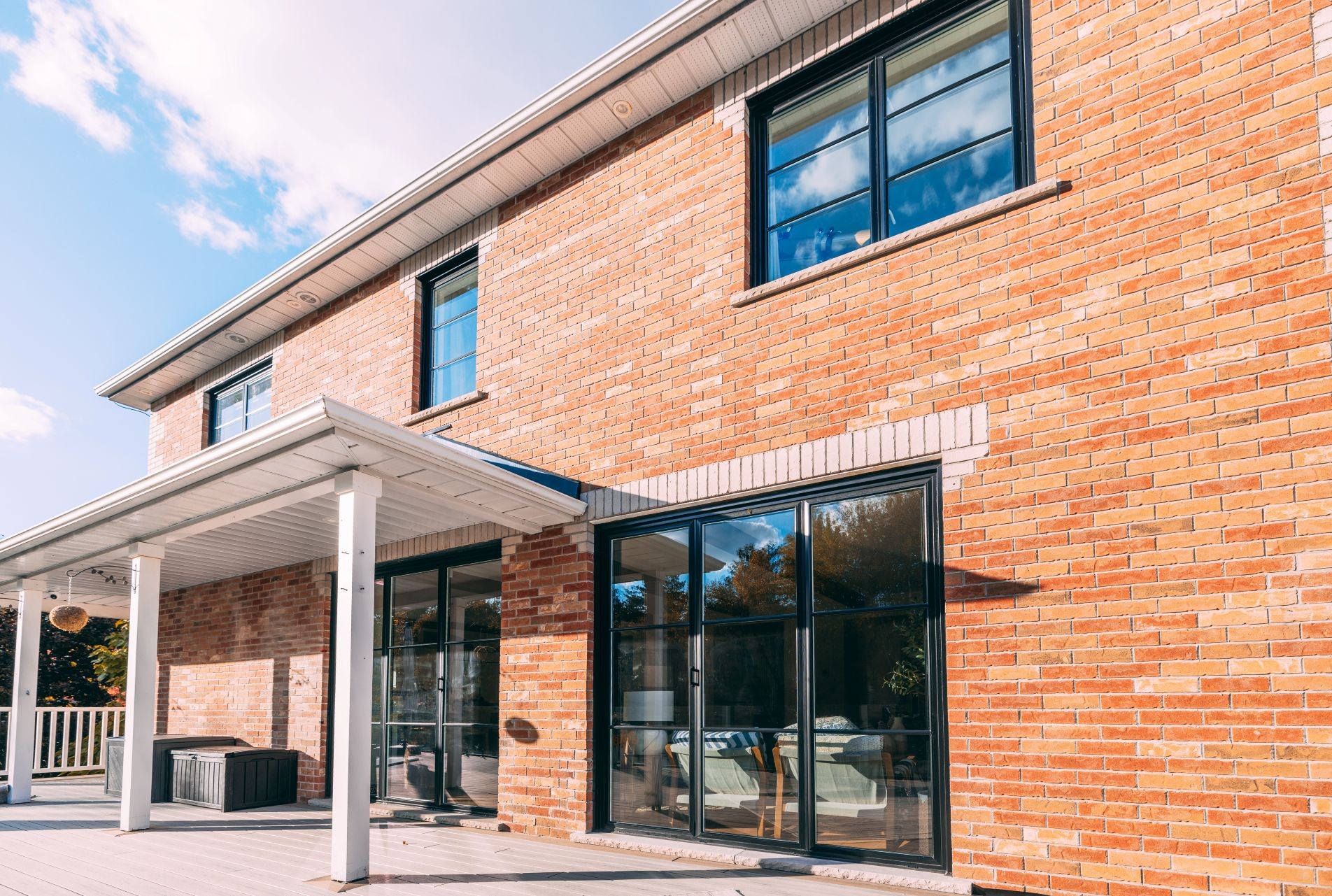
If you've just replaced your broken windows, you're probably wondering how you can prevent these cracks in the future and keep your new glass in perfect shape, right?
Well, in some cases, you simply can't. For example, if there are extreme temperature fluctuations in your region, your windows will always be at a higher risk of thermal stress cracks.
However, you can definitely take some measures to reduce the likelihood of your windows developing cracks. Here are some you may want to consider:
- Seal gaps and joints promptly to prevent water from seeping in and weakening your window frame and overall structure.
- Add storm windows, especially in areas with high winds or sudden temperature swings.
- Use window film, as it can absorb stress and help block damaging UV rays.
- Maintain a steady indoor temperature to prevent thermal stress cracks caused by hot-and-cold extremes.
- Check regularly: a quick look once a season (or more often, depending on the climate) can help you catch early signs of damage.
- Install thicker glass, as it can also help minimize the risk of thermal glass cracks.
If you still haven't replaced your broken windows, consult with a local window company. They'll help you choose the insulated glass that is suitable for your particular region, keeping in mind the climate, the window's location, and any other details that matter. This is an important step in shielding your brand-new windows against cracks!
Get High-Quality Glass For Your Windows!
Don't let your cracked window get worse and compromise your safety. You can now replace it with Magic windows, which last 40 years - almost half a century of no repairs or issues, as long as the windows are maintained properly!
Our windows are manufactured precisely for Canadian weather, so they can resist temperature fluctuations and extreme weather conditions!
Hurry up and book your free consultation!
Frequently Asked Questions
Can you fix a cracked window?
You can repair cracked windows if you're only dealing with small cracks. You can do so with epoxy or glass repair kits. Larger cracks usually require full replacement.
Can you leave a window with a crack in it?
It's not advisable to leave a window with a crack in it for too long. You can temporarily cover it with a plastic sheet, but the crack can spread, compromise insulation, and pose a safety risk.
Why would a window crack from the inside?
A window can crack from the inside because of sudden temperature changes, pressure from shifting frames, or impact from inside the house.
When to worry about cracks around windows?
You should worry about cracks around windows when they start spreading, appear suddenly, or are accompanied by drafts or water leaks.
What would cause a double-pane window to crack?
Double-pane windows can crack because of thermal stress, improper installation, manufacturing defects, or pressure changes between the panes.
When should I replace my cracked window instead of repairing it?
Replace your cracked window if the damage is extensive, if the glass is foggy, or if large cracks compromise its structural integrity. In these cases, a replacement ensures safety and efficiency.